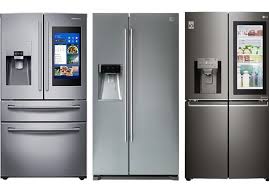Refrigerators have become an indispensable part of modern life, خرید یخچال فریزر revolutionizing the way we store and preserve food. From their humble beginnings as iceboxes to today’s smart appliances, refrigerators have undergone significant transformations. This article explores the evolution of refrigerators, tracing their history, technological advancements, and their impact on society.
The Emergence of Iceboxes:
Before the invention of mechanical refrigeration, people relied on iceboxes to keep their food cool. These early refrigerators consisted of insulated wooden or metal boxes lined with a layer of insulation such as cork or straw. Blocks of ice were placed inside the icebox, which helped maintain a low temperature and preserve perishable items.
The Birth of Mechanical Refrigeration:
The 19th century witnessed significant advancements in refrigeration technology. In 1834, Jacob Perkins patented the first practical refrigerating machine, which used a closed cycle of compressed ether to cool substances. However, it was not until 1876 that Carl von Linde invented the first practical and efficient refrigeration system using ammonia as a refrigerant.
The Rise of Electric Refrigerators:
The early 20th century saw the introduction of electric refrigerators, marking a significant shift in refrigeration technology. Companies like General Electric and Kelvinator pioneered the development of electric refrigerators for home use. These refrigerators replaced the need for ice delivery and offered greater convenience to consumers.
The Advent of Freon:
In the 1920s, Thomas Midgley Jr. introduced Freon, a non-toxic, non-flammable refrigerant that revolutionized the refrigeration industry. Freon, a brand name for chlorofluorocarbon (CFC), became the standard refrigerant used in refrigerators for several decades. However, concerns about its detrimental effects on the ozone layer led to its eventual phase-out in the late 20th century.
The Era of Frost-Free Refrigerators:
One of the most significant innovations in refrigerator technology was the introduction of frost-free models in the 1960s. Frost-free refrigerators eliminated the need for manual defrosting, saving consumers time and effort. This innovation was made possible by the development of automatic defrost systems that prevented the buildup of frost and ice inside the refrigerator.
The Digital Age: Smart Refrigerators:
In recent years, refrigerators have entered the digital age with the advent of smart appliances. Smart refrigerators are equipped with advanced features such as touchscreen displays, built-in cameras, and Wi-Fi connectivity. These refrigerators allow users to monitor their food inventory, adjust temperature settings remotely, and even access recipes and grocery lists from their smartphones.
Conclusion:
The evolution of refrigerators from simple iceboxes to smart appliances has transformed the way we store and preserve food. From the invention of mechanical refrigeration to the development of frost-free technology and smart features, refrigerators have continuously evolved to meet the changing needs of consumers. As we look to the future, it is clear that refrigerators will continue to innovate, offering even greater convenience, efficiency, and sustainability.

